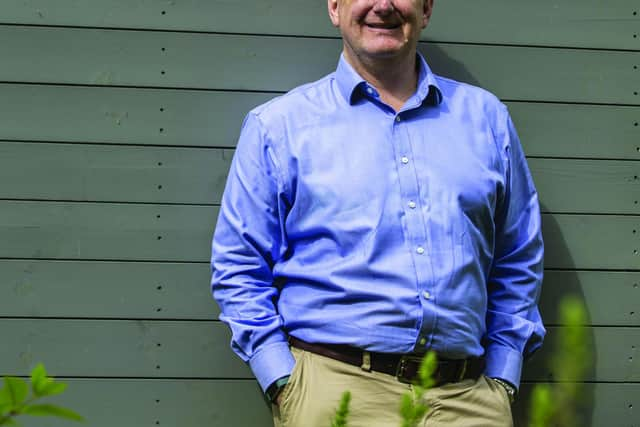Life Sciences 2022: Hitting industry target of £8bn revenue early
We aim to drive and support our sector to exceed the target set in 2017 of £8 billion in revenue to the Scottish economy by 2025.
Talking numbers, the message to take away is that we have gone from £6.5bn in revenue in 2017 to £7.4bn in 2019 – and the latest set of figures for 2020 will show the strength of our sector and how we will hit the goal early and smash the target by the time 2025 comes round!
Advertisement
Hide AdAdvertisement
Hide AdIn recent years, the life sciences community has made Covid-19 vaccines which have enabled us all to return to normality and which have undoubtedly saved countless lives. The spirit of what can be done when everyone aligns on a common goal showcases what we can do – and that sense of purpose pervades our industry.


Scotland has set challenges for innovation which we will all enthusiastically step up to try to solve, with an Innovation Design Authority in place to pick the most promising ideas and assist them in adoption into practice in our healthcare system.
How will we continue to grow and develop the life sciences sector has been the critical question which collectively we have all worked on – and there are some big overarching themes that will take us to the next level, both locally and globally, to deliver the growth we want. These are data and digital; skills; and internationalisation.
Data and digital: the ability to use the CHI (Community Health Index) number and linked health records to investigate what therapies and interventions work best for a group of patients means Scotland can treat its population optimally – this also allows for inward investment in trials and research. The digital infrastructure and process that underpins this in Scotland to allow this to succeed is evolving at scale and pace.
Skills: in its broadest sense, life sciences needs a plethora of skilled people and will create many highly skilled and well-paid jobs. We are working hard to ensure that growth isn’t constrained by the capacity of our workforce with key players like SULSA (Scottish Universities Life Sciences Alliance), but we also need to support our existing people with things like how to deliver entrepreneurship and innovation.


Internationalisation: Scotland is an engine-room of innovation and we need to take it to the world, to export and enhance the global reputation of our country. In turn, we need the world to recognise Scotland and come to invest here. A genuine, active and two-way internationalisation that both exports and brings jobs and revenue to Scotland is a goal.
Whatever we do to succeed, it will be collegiate in a spirit of partnership and collaboration that will benefit Scots. The triple helix of academia, industry and health will work together to solve both the problems we know of and will also stand ready to react to the ones that we don’t yet know about.
- Mark Cook is co-chair of the Life Sciences Scotland Industry Leadership Group